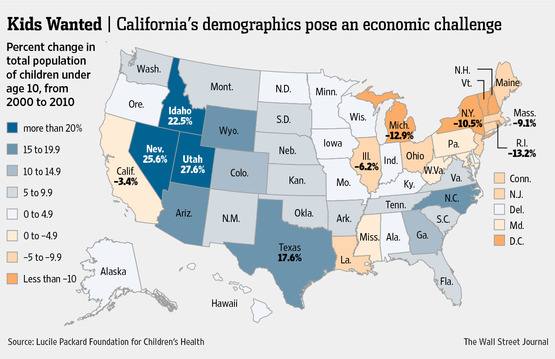Dr. Brad Wilcox is one of the top family scholars in America. His research at the University of Virginia focuses on marriage and cohabitation and on the ways that gender, religion, and children influence the quality and stability of American family life.

A few years ago, Dr. Wilcox took the time to answer a few questions from us about how couples go about forming families today and the role parents, pastors and mentors can play in supporting them. The following is a reprint from that interview:
Based on the research you’ve seen, do you have a sense of how many American couples go into marriage and parenting with a sufficient amount of vision and preparation? Is it the majority or the minority?
Most couples in the United States who marry are exposed to cursory or no marital preparation. They may attend one or two sessions with a layperson, pastor, or priest but generally do not get the thorough preparation they need to increase their odds of marital success.
On the other hand, a large minority of couples who get married in churches are exposed to a premarital preparation that does a good job of inventorying their strengths and weaknesses, preparing them for the key challenges of married life (e.g., money, sex, children, gender differences in relationship styles, and learning to sacrifice for the good of their spouse), and giving them a theological framework for thinking about marriage and family life.
A hundred years ago, parents, pastors and mentors played a very active role in helping couples in the United States to marry well and then to support them in starting a family. Today, couples are much more autonomous in their approach to family making. What difference does that make?
Well, we know that is hard for couples to go it alone, and yet they are now more likely to try to do that, as research by Paul Amato at Penn State and his colleagues indicates. The problem with couples trying to do it all on their own is that no spouse is capable of meeting their spouse’s deepest desires for intimacy and meaning and—of course—no spouse is perfect.
By contrast, couples who have family members, friends, and fellow churchgoers who are committed to their marriage are likely to get advice, as well as moral and practical support, that makes married life easier for them. In fact, we know that one of the best predictors of marital success is being embedded in a social network that takes marriage seriously. So couples should seek out friends who share their commitment to marriage.
What do churches and families stand to gain by coming alongside couples in their paths to marriage and family?
Marriage is one of the most important social supports of faith in America. Adults who are married are much more likely to attend church than are adults who are single or divorced. This is especially true for men. Likewise, children who have been raised in a stable, intact, married home are much more likely to stick with their faith than are children who have been affected by divorce or single parenthood.
What are the simplest things pastors, parents and mentors can do to influence how the next generation of families form?
One of the most important things that pastors and lay leaders in churches can do to strengthen marriage is to provide their adult members, and the youth in their church, with a realistic model of married life.
Marriage is not about finding and sustaining an ideal soulmate relationship. Yes, love is important. But marriage is also about regular sex, having and rearing children, providing practical and emotional support to a spouse, establishing a common economic enterprise, treating one’s kin (including one’s in-laws) with love and respect, and growing in the faith.
Paradoxically, couples who understand that marriage is about many different goods in life (not just an intense emotional relationship) are more likely to enjoy a happy, lifelong marriage than couples who see marriage through a soulmate lens.
———————————-
W. Bradford Wilcox is Director of the National Marriage Project at the University of Virginia, Associate Professor of Sociology at the University of Virginia, and a member of the James Madison Society at Princeton University.
Brad Wilcox earned his undergraduate degree at the University of Virginia and his Ph.D. at Princeton University. Prior to coming to the University of Virginia, he held research fellowships at Princeton University, Yale University and the Brookings Institution.
Mr. Wilcox’s research focuses on marriage, parenthood, and cohabitation, and on the ways that gender, religion, and children influence the quality and stability of American marriages and family life. He has published articles on marriage, cohabitation, parenting, and fatherhood in The American Sociological Review, Social Forces, The Journal of Marriage and Family and The Journal for the Scientific Study of Religion. With Nicholas Wolfinger, Wilcox is now writing a book titled, Soul Mates: Religion, Sex, Children, & Marriage among African Americans and Latinos, for Oxford University Press. With Eric Kaufmann, Wilcox is finishing a book on the causes and consequences of low fertility in the West. He is also the coauthor of Gender and Parenthood: Biological and Social Scientific Perspectives (forthcoming from Columbia University Press).














